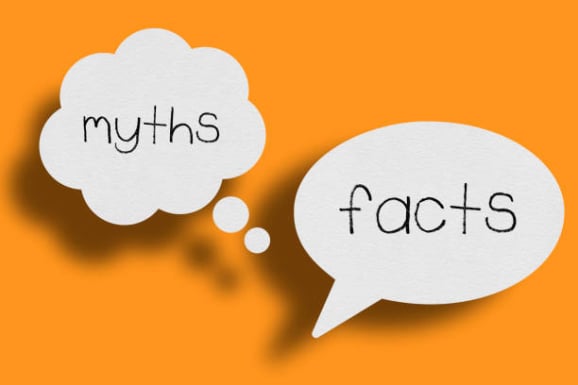

For the longest time, strength training typically targeted men who wanted to put on muscle mass. Women avoided it because they were warned that if they lifted heavy weights they would get "bulky". Instead, women were targeted with marketing terms such as, "toning" and "lengthening" their muscles. But "toning" simply means to build muscle. Hence, why your muscles look more "toned" when they grow and become more defined.
Meanwhile, you've probably heard about "lengthening" your muscles if you've been to a pilates, yoga or barre class, because the exercises you're doing are supposed to help you achieve a "long" and "lean" look. "Lengthening" your muscles is also a bit of a stretch, because you can't anatomically change the length of your muscle tissue
Spot reduction is the idea that you can burn fat off a specific part of your body such as your stomach by doing exercises for that region. You've probably heard this narrative from some fitness influencers claiming that if you do enough crunches, you'll get six pack abs. When in reality, it's impossible to solely target a specific area of the body to lose fat or weight. "
One other thing to consider is that fat stored in your body is used for energy it's broken down into free fatty acids and glycerol. As a result, the fat that is broken down and used for fuel can come from any part of the body."Fat loss will look different on everyone and genetics has a huge role in determining where you carry it," DiLandro emphasizes.
The phrase "no pain, no gain" is commonly heard in the fitness world as a means to get people to push themselves harder during their workout. While it is good to challenge yourself occasionally, doing it too often can set you up for injury and set back your performance abilities. In fact, repeatedly going too hard can cause overtraining syndrome, which inhibits your muscles' ability to recover properly, affects your mood, your immune system and more. Furthermore, it can affect your ability to sleep because too much exercise can overstimulate the nervous system.
A student athlete-focused study also found that by rapidly increasing training loads, athletes were more susceptible to soft-tissue injuries. This is in contrast to those athletes who gave themselves time to build up to that point and were able to protect themselves against injuries. The best approach is to slowly build yourself up to your goal, instead of doing too much at once.
Monthly challenges tend to flood us at the beginning of the new year. They're usually in the form of a 30-day challenge that requires you to do 100 squats a day or eliminate food groups, among other examples. The problem with these challenges is that they're just short-term fixes, and they can put your health at risk.
"Monthly food challenges like detoxes or strict diets promote an unhealthy relationship with food, and oftentimes the weight loss seen is just water weight that comes back quite quickly after," warns DiLandro. She adds that these challenges promise that if you can just stick with one extreme for a certain amount of time, you will magically see results, which isn't true. Depending on the challenge, it can also cause more harm than good.
Fasted cardio, or exercising on an empty stomach, has been part of the great debate when it comes to weight loss. It gained popularity when bodybuilder Bill Phillips put it on the map in his book, Body for Life. The idea behind doing fasted cardio is that you'll burn more fat because your body is using stored fat as energy instead of glucose.
Although you may initially burn more calories by doing fasted cardio, ultimately it doesn't make a huge difference when it comes to weight loss because what matters most is your total daily calorie intake. In other words, if weight loss is your goal, being in a caloric deficit is far more important than whether you exercise fasted or not. Studies have also found that there was no significant difference with weight loss between those who did fasted cardio and those who did non-fasted cardio.
STAY CONNECTED FOR MORE